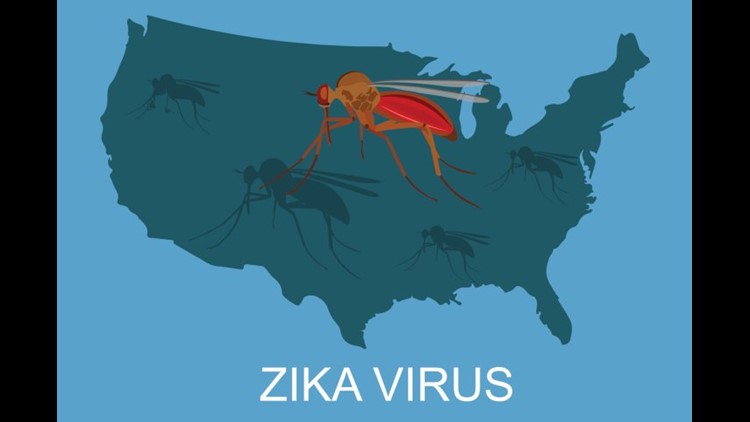(CNN) — Throughout her pregnancy, Maria Mendoza, who currently lives in Miami, anguished about her baby’s health.
Would little Micaela be okay even though she’d contracted the Zika virus when she was three months pregnant?
Her ultrasounds looked fine and Maria and her husband, Omar, were relieved when Micaela appeared healthy at birth, just like their three older children.
But then the day before she was to be discharged, doctors told the Mendozas that Micaela would have to stay in the hospital because an MRI had found calcifications in her brain.
They were stunned.
“I cried a lot,” Maria said. “It was terrible.”
The calcifications were the scarring left when Zika had infected Micaela’s brain and destroyed tissue while she was still in the womb.
“Doctors wouldn’t say a lot because they were doing a bunch of tests,” Maria said. “It was terrible, and the fear is still there.”
The sinister nature of Zika
Micaela is among the first babies to be born in the United States with Zika-related complications.
Doctors are learning that some problems, such as having microcephaly, or a very small head, are relatively easy to spot during pregnancy or shortly after birth. But other, more subtle problems such as brain calcifications can be more difficult to catch.
And it’s hard to know what these more subtle complications will mean for a child later in life.
“There’s a lot we don’t know about Zika,” said Dr. Marcelo Laufer, a pediatric infectious disease expert at Nicklaus Children’s Hospital in Miami who has evaluated Micaela. “We have more questions than answers.”
When Zika attacks a fetus’ brain, it can cause intellectual disabilities as well as vision and hearing problems, he said.
Micaela has abnormalities in her retinas because of the virus, but her mother says doctors told her it shouldn’t cause any vision problems.
There’s more uncertainty about what the brain calcifications will mean for her future.
While other viruses, such as herpes and cytomegalovirus, can also affect a fetus’ brain, it’s hard to draw parallels to Zika, according to Dr. Gary Clark, chief of neurology at Texas Children’s Hospital.
“Different viruses have different patterns of brain calcification — it’s a response of the brain to that particular pathogen,” Clark said.
“This is a whole new ballgame, and we’re going to have to see what happens with Zika,” he added. “But you do have to be worried.”
Micaela’s story
When Maria developed a fever and rash in December in her native Venezuela, Zika wasn’t the first thing doctors thought of, considering the virus had appeared just months before in Latin America.
When they determined later that it was Zika, they told the Mendozas not to worry, as it wouldn’t affect her unborn child.
But then the Mendozas saw a story on CNN about the link between Zika and microcephaly, and she urged her physicians to monitor her baby.
They did, and everything looked fine, but her doctors told her she could choose to terminate the pregnancy given the uncertainties about Zika.
“It was my decision to have her or not,” she said. “It was a matter of waiting and asking God and the Virgin (Mary) that everything would be okay. And that’s what we did.”
But it wasn’t easy.
“It was a very stressful situation, a lot of anguish, weeks of waiting without knowing if she was going to develop as a baby the way she was supposed to normally,” she added.
Maria said she often travels with her husband for his business, and joined him in Miami while seven months pregnant.
Ultrasounds there showed the baby was fine.
She said that made it all the more difficult to learn of the brain calcifications when Micaela was a few days old.
Micaela is now starting physical and occupational therapy several times a week, and Maria does therapy for her at home, doing exercises to encourage her baby to develop good head control and relaxed muscles.
She said she felt relieved when doctors told her that with the therapy and constant monitoring, they expect Micaela will be okay.
“The future is uncertain,” she said. “But we stay positive.”



